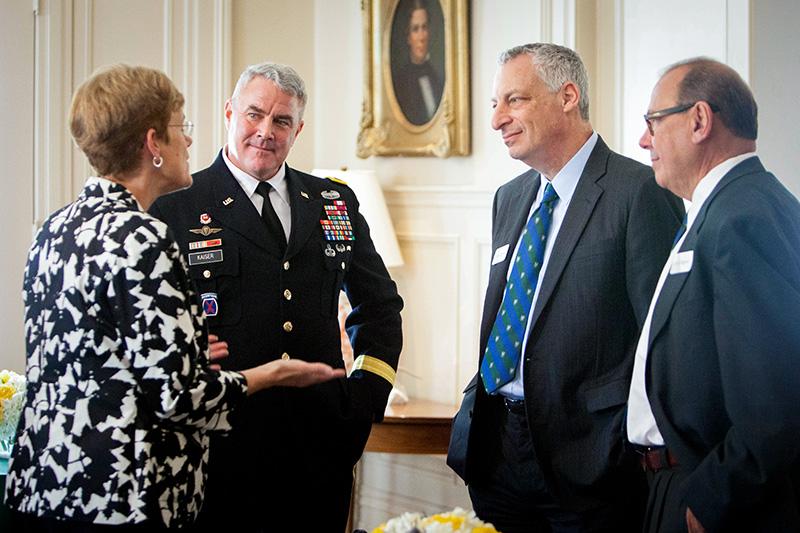Tulane celebrates launch of River Science and Engineering certificate program
On April 20, Tulane faculty members from the Department of River-Coastal Science and Engineering and senior university administrators met with Mississippi River Commission representatives and U.S. Army Corps of Engineers (USACE) senior leaders to celebrate the university’s longtime partnership with the USACE and the successful launch of the River Science and Engineering Certificate Program.
“This program is part of Tulane’s commitment to prepare future leaders in river and gulf issues so that they can create practical solutions for one of our region’s most pressing problems through the intersection of science, engineering and public policy,” said Robin Forman, senior vice president for academic affairs and provost.
“When the river rises too much or the lake comes over its shores, we know that it makes a big difference to the quality of life in this region,” said Rick Matasar, senior vice president for strategic initiatives and institutional effectiveness.
“This program is part of Tulane’s commitment to prepare future leaders in river and gulf issues.”
— Robin Forman, senior vice president for academic affairs and provost
“The new certificate program uses teaching technology to reach every qualified student in the USACE and elsewhere who would benefit from the knowledge and be able to deploy what is learned into actual policies that will reduce risk and promote economic growth,” he added.
Although the School of Science and Engineering opened the new department in July 2017, the department brings together themes and disciplines that have been at Tulane for a long time.
“The interdisciplinary nature of our department gives Tulane an incredible opportunity to bring science, engineering and practice together,” said Mead Allison, department chair and professor of earth and environmental sciences. “Doing so strengthens our partnership with the corps and with those around the world dealing with coastal and river issues.”
“The future of our university depends on addressing those issues, and we will make a difference,” added Allison.
The program’s graduate-level courses are offered completely online through self-taught modules and weekly live sessions. Courses include River-Coastal Hydrologic and Hydraulic Modeling and River and Stream Restoration among others.
“The class has been a very useful exchange that has brought together practitioners, academics and graduate students with different expertise and viewpoints,” said Barb Kleiss, director of the Louisiana Coastal Area Science and Technology Office and adjunct assistant professor.
She added that the “connections between USACE professionals and science and engineering students who are building their careers holds great promise in creating the next generation of leaders in river and coastal studies.”
To enroll in the certificate program, click here.

